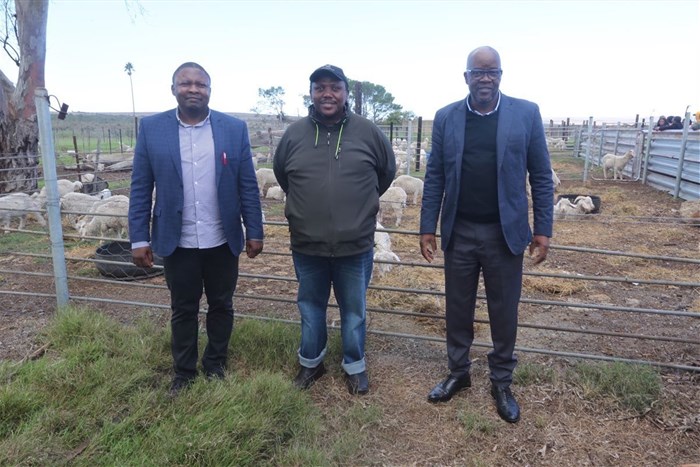Angora goat farming operations in Somerset East, under the Sarah Baartman District Municipality, have received an investment of R1.4m, which will significantly improve the chances of Black mohair producers in the Eastern Cape. The Eastern Cape Development Corporation (ECDC) and the Mohair Empowerment Trust (MET), a project of Mohair South Africa, worked together to provide the funding injection. By commercialising the operations of up-and-coming Black Angora goat farmers and acquainting them with the global mohair value chain, the Mohair Business Support Programme initiative seeks to revolutionise the mohair business and introduce them to the global mohair value chain.

Source: Supplied
Eastern Cape: The global mohair capital
The Nelson Mandela Bay region is considered the global mohair capital because its port handles the bulk of South African exports. The region has the largest mohair spinner in the world in Kariega and another in Gqeberha not far behind. In addition, 90% of the produce is channelled through the ports of Ngqura and Gqeberha of which 70% is exported to Italy and China.
"The four farms are the Driefontein Farm in Somerset East which received R546,800 to buy 200 angora goats and piping for irrigation from the ECDC-administered Imvaba Cooperatives Fund and Uitkomst Farm in Jansenville which received R561,978 from the Imvaba Cooperatives Fund for a fully-equipped irrigation system. The system will allow the farm to produce its feed," said a representative from Mohair South Africa.
Driving collaboration: A Memorandum of Understanding
"The funding support follows the conclusion of a three-year Memorandum of Understanding (MoU) in September 2023 between the ECDC and the Mohair Empowerment Trust (MET) to support emerging angora goat farmers and to facilitate funding opportunities for them.
A further R1m has been made available by the ECDC through its economic development coordination and sector support initiative to assist 12 farmers in the MET mohair support program with shearing sheds tools for mohair sorting, classing and shearing efficiency,” said Mlungisi Mvoko, MEC for finance, economic development, environmental affairs and tourism.
"This project has turned the fortunes of these black farmers who have thirty-year leases on the farms owned by the Department of Agriculture, Land Reform and Rural Development (DALRRD). Introducing these farmers to angora goat farming, capacity building and funding has greatly improved the profitability and sustainability of these development farms in their pursuit to be commercial farmers,” stated Ayanda Wakaba, the CEO of ECDC.
South African mohair: A global benchmark
Most of the rest of the world’s mohair is imported into Gqeberha and processed at Gubb & Inngs (part of the Stucken Group) in Kariega and Samil Processing near King Williams Town from where it is exported. Farms in the small towns of Aberdeen, Somerset East, Jansenville and Willowmore routinely produce nearly half of South Africa’s production. Processing of mohair takes place in Kariega, Gqeberha and Ntabozuko outside East London. The mohair value chain includes brokers, buyers, processors, spinners, manufacturers and retailers.
Through strategic partnerships and targeted interventions, South Africa's mohair industry is poised for sustained growth and prosperity. By harnessing the potential of its natural resources and fostering inclusivity, the sector continues to thrive, offering economic opportunities for generations to come.




























